Resources
Here you can search external resources from STOP Spillover's experts (tagged in blue) and resources developed by the STOP Spillover project (tagged in red).
We found 19 resources.
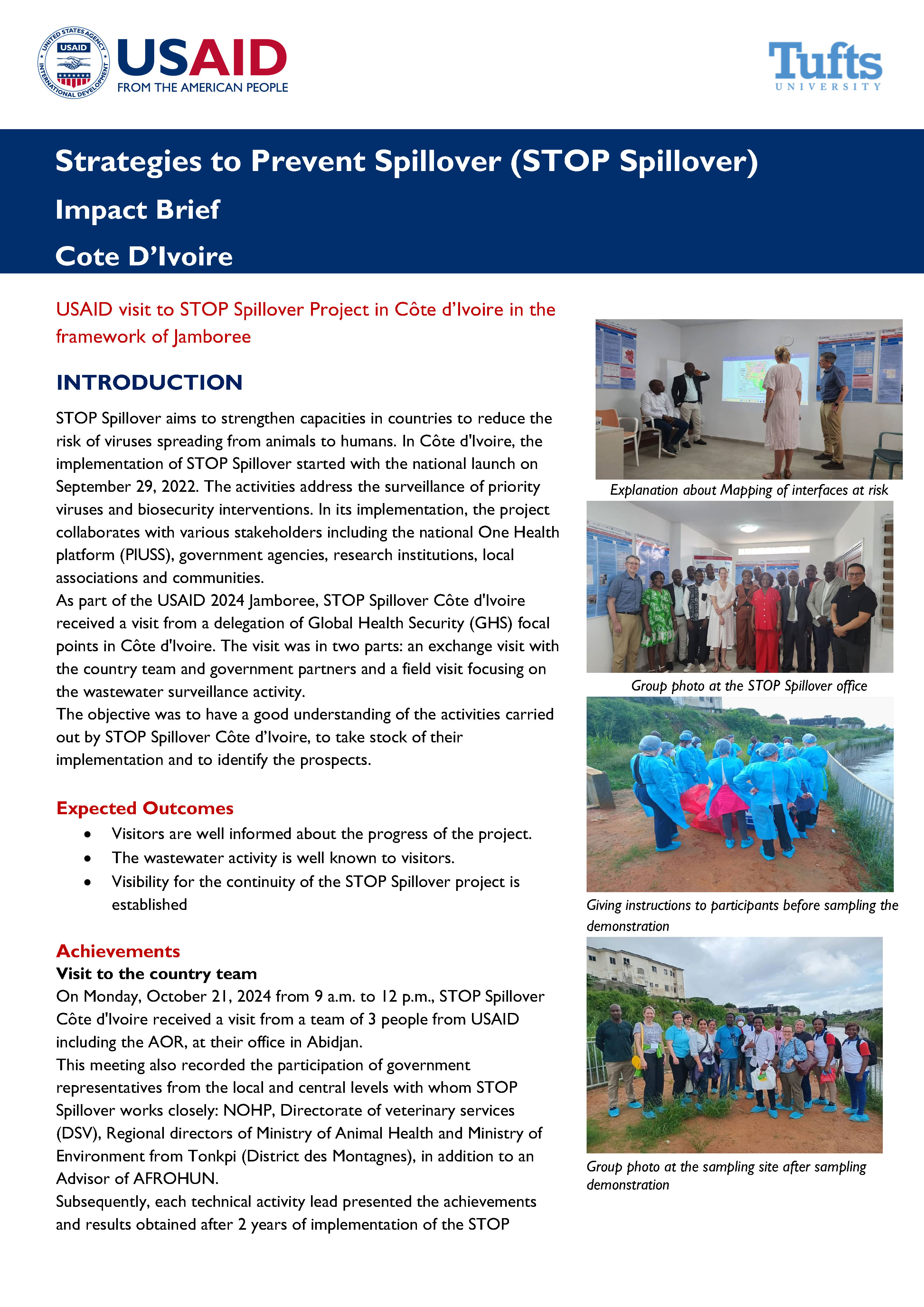
Impact Brief: USAID Visit to STOP Spillover Project in Côte d’Ivoire in the Framework of Jamboree
This brief summarizes a visit from a delegation from USAID to STOP Spillover Côte d'Ivoire. The jamboree included an exchange visit with the STOP Spillover Côte d'Ivoire Country team and government partners and a field visit that focused on wastewater surveillance.
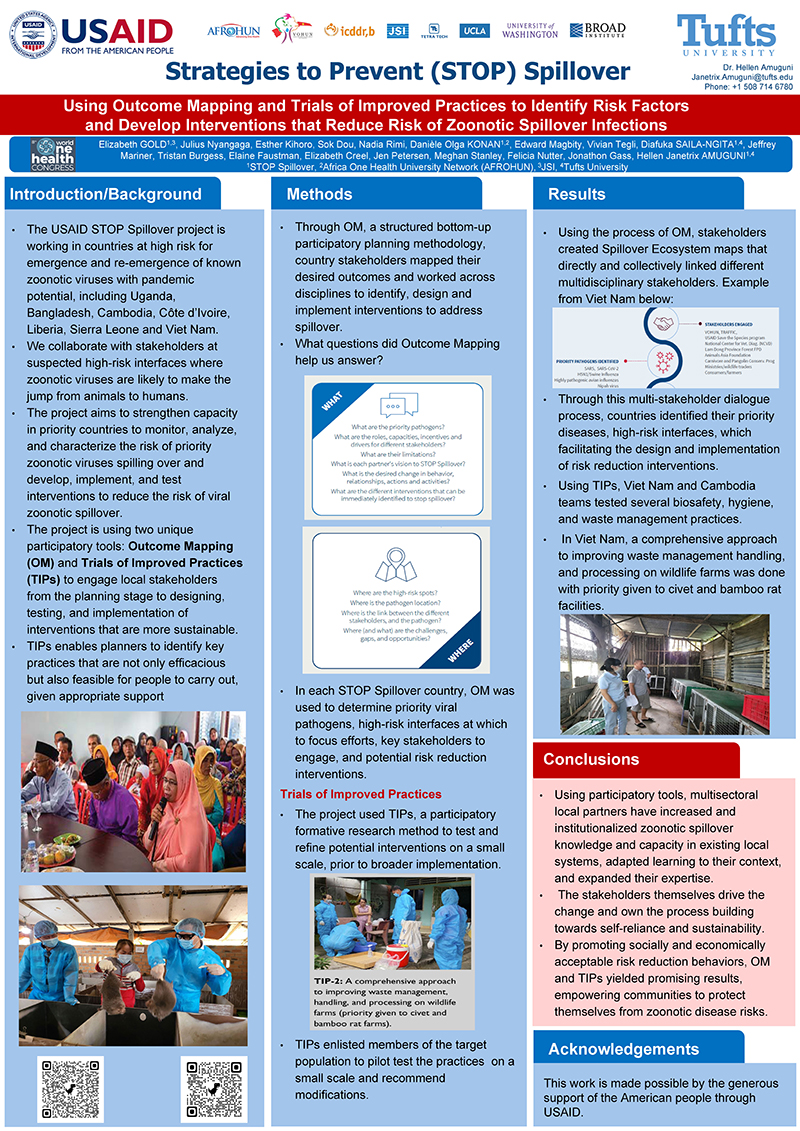
This STOP Spillover poster, presented at the 8th World One Health Congress 2024, describes the project's use of two unique participatory tools—Outcome Mapping and Trials of Improved Practices—to engage local stakeholders from the planning stage to designing, testing, and implementing interventions that are more sustainable.
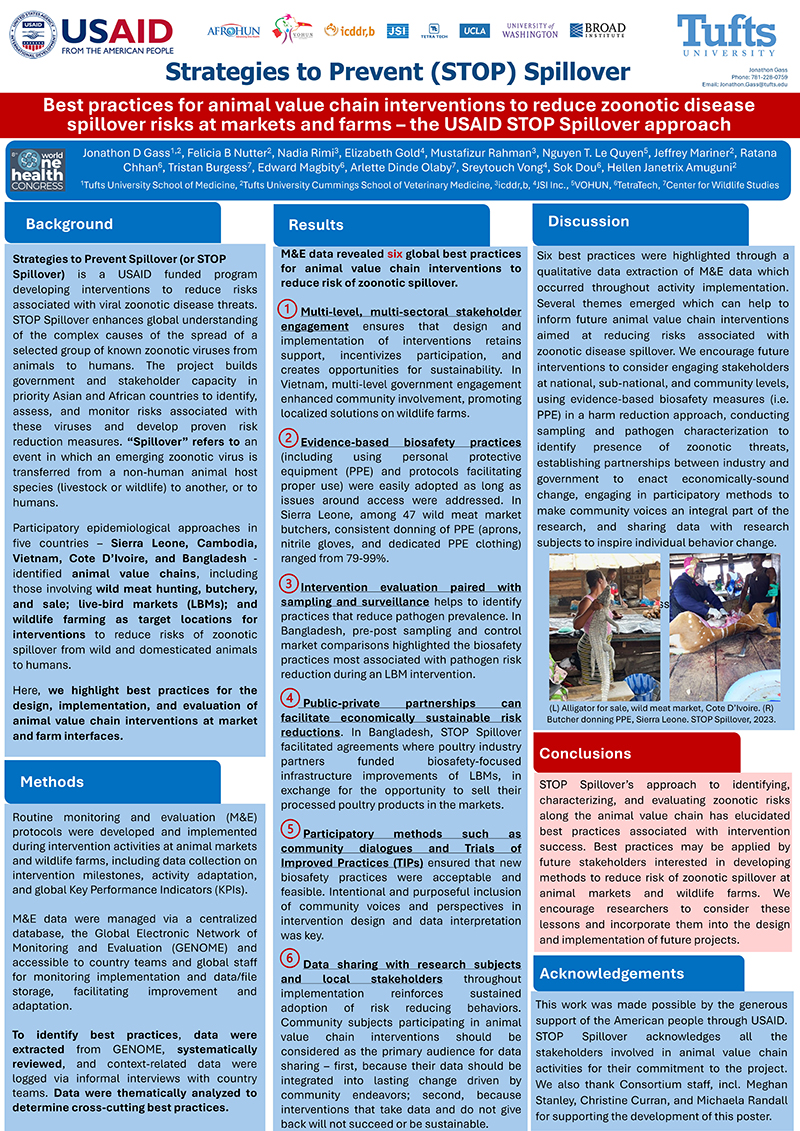
This STOP Spillover poster, presented at the 8th World One Health Congress 2024, describes six best practices for the design, implementation, and evaluation of animal value chain interventions at market and farm interfaces. The best practices were identified through qualitative data extraction of monitoring and evaluation data.
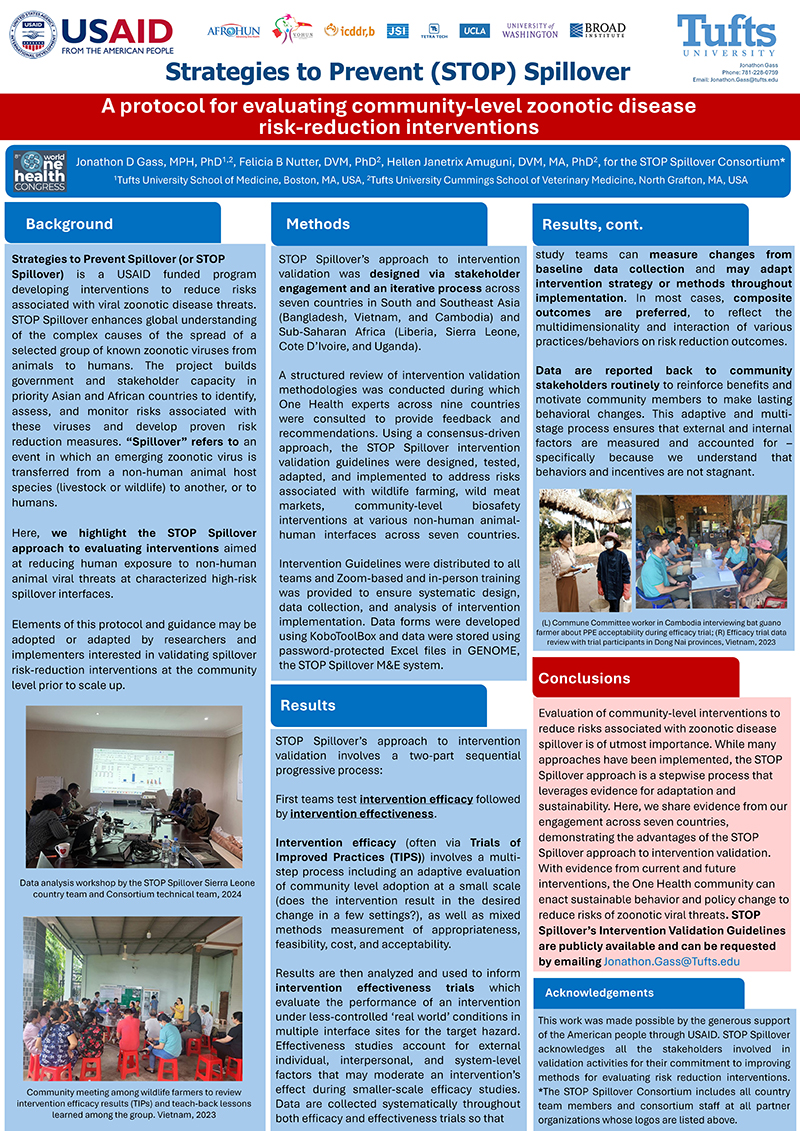
A Protocol for Evaluating Community-Level Zoonotic Disease Risk Reduction Interventions
This STOP Spillover poster, presented at the 8th World One Health Congress 2024, describes the project's approach to intervention validation, which was designed via stakeholder engagement and an iterative process across seven countries in South and Southeast Asia and Sub-Saharan Africa to address risks associated with wildlife farming, wild meat markets, and community-level biosafety interventions at various non-human animal-human interfaces.
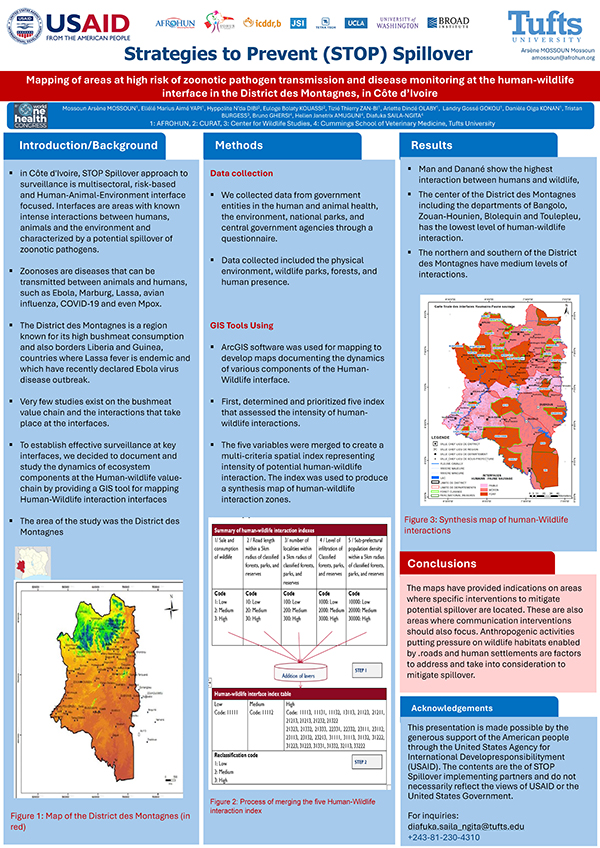
This STOP Spillover poster, presented at the 8th World One Health Congress 2024, describes the use of ArcGIS software to develop maps documenting the dynamics of ecosystem components at human-wildlife interaction zones with the potential for spillover of zoonotic pathogens.
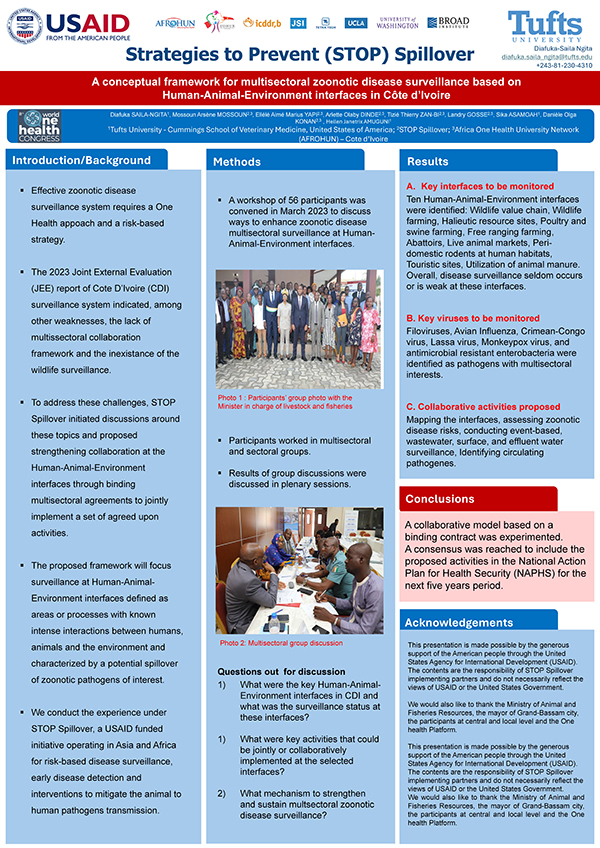
This STOP Spillover poster, presented at the 8th World One Health Congress 2024, describes the convening of a multisectoral workshop on enhancing zoonotic disease surveillance at human-animal-environment interfaces at risk for spillover of zoonotic pathogens.
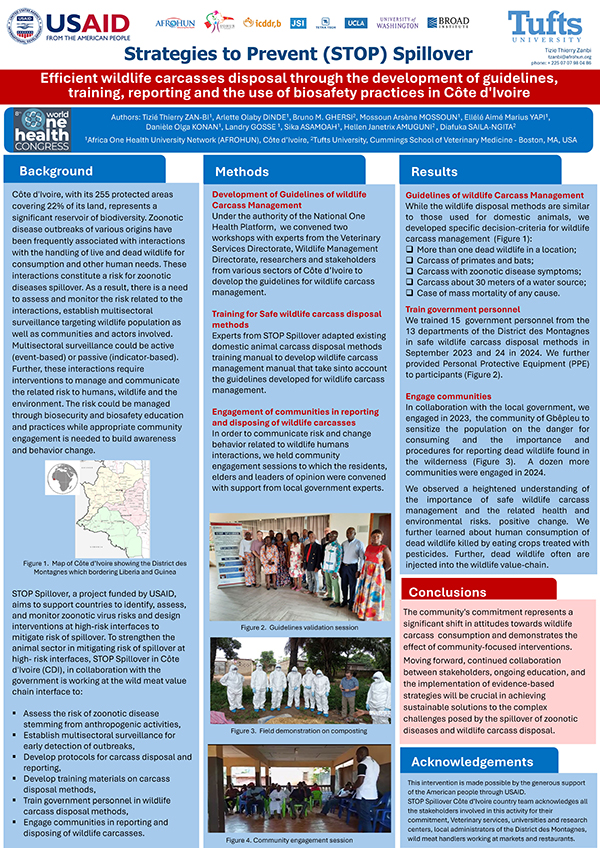
This STOP Spillover poster, presented at the 8th World One Health Congress 2024, summarizes the STOP Spillover Côte d'Ivoire Country Team's work to develop with stakeholders guidelines for wildlife carcass management, train government personnel in safe wildlife carcass disposal methods, and implement community engagement sessions on the risks associated with wildlife carcass consumption.
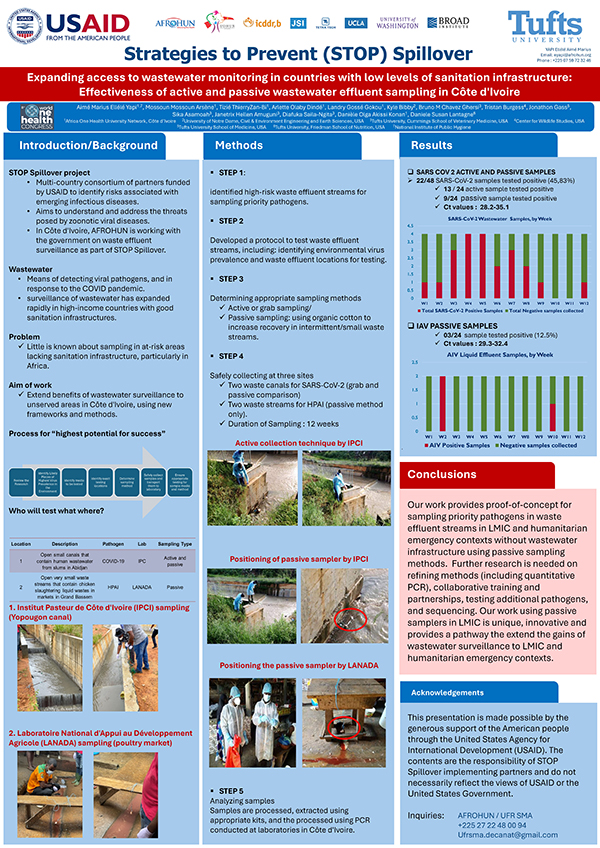
This STOP Spillover poster, presented at the 8th World One Health Congress 2024, describes active and passive wastewater effluent sampling in three at-risk sites lacking sanitation infrastructure in Côte d'Ivoire.
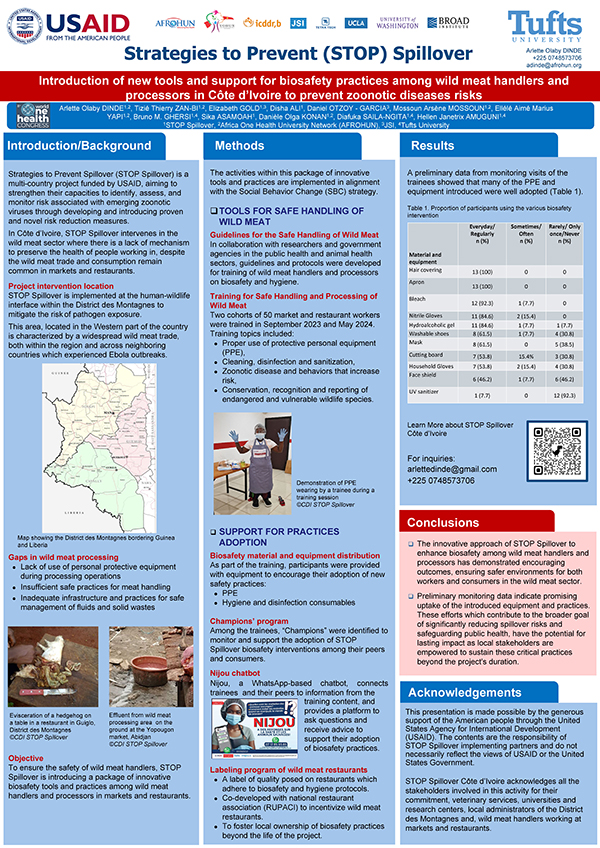
This STOP Spillover poster, presented at the 8th World One Health Congress 2024, describes the STOP Spillover Côte d'Ivoire Country Team's development of guidelines and protocols for wild meat handling and processing, training in wild meat handling and processing for market and restaurant workers, and distribution of biosafety equipment.
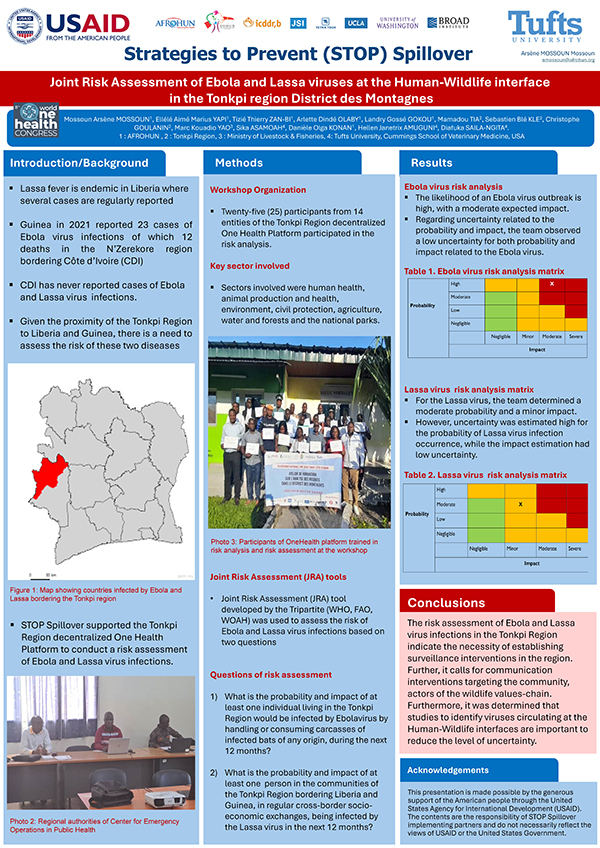
This STOP Spillover poster, presented at the 8th World One Health Congress 2024, summarizes a workshop that focused on assessing the risk for Ebola and Lassa virus infections in the Tonkpi Region of Côte d'Ivoire.
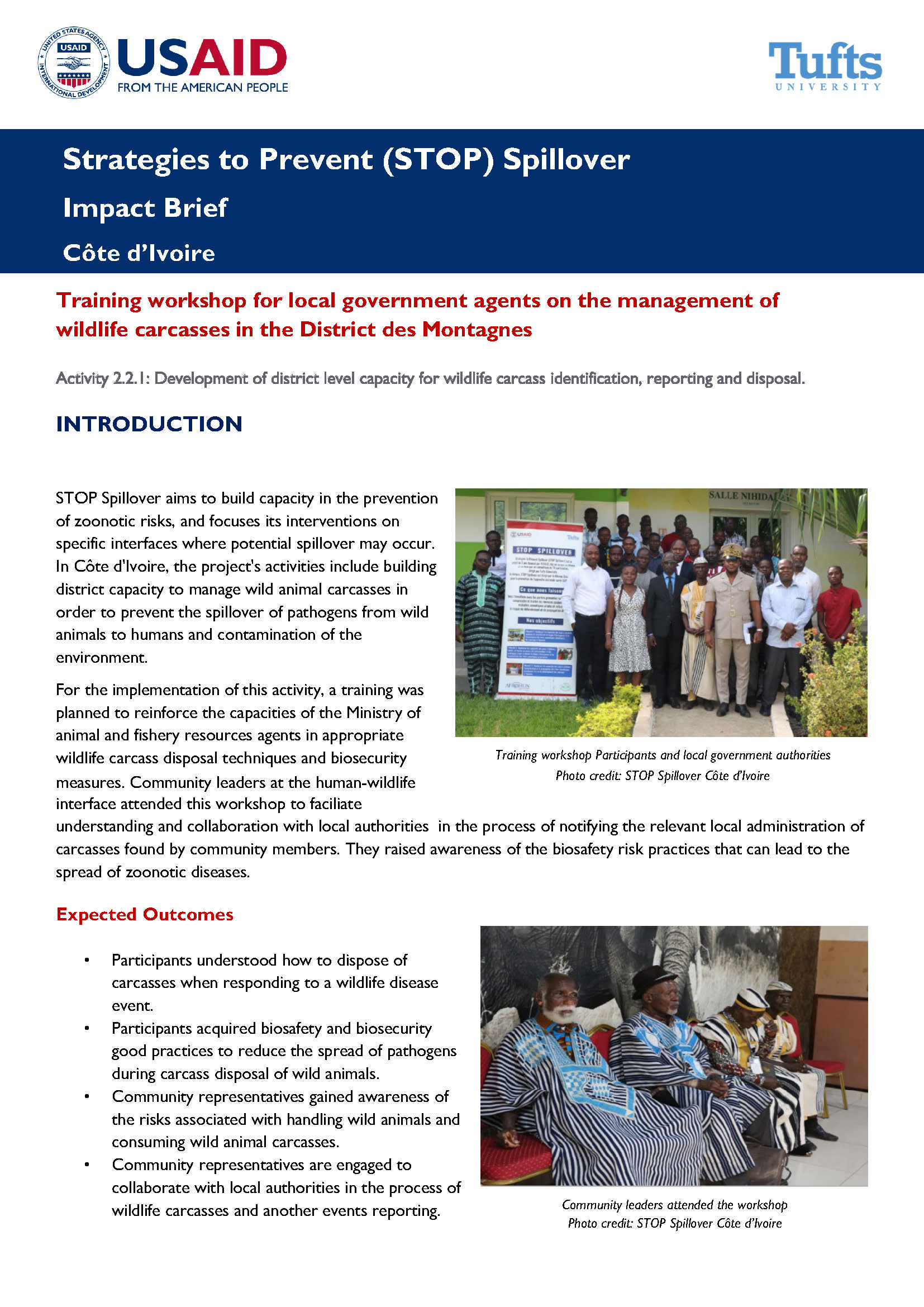
This brief summarizes a training held in Man in the District des Montagnes in Côte d'Ivoire for agents from the Ministry of Animal and Fishery Resources and community leaders on appropriate wildlife carcass disposal techniques and biosecurity measures to prevent the spillover of pathogens from wild animals to humans.
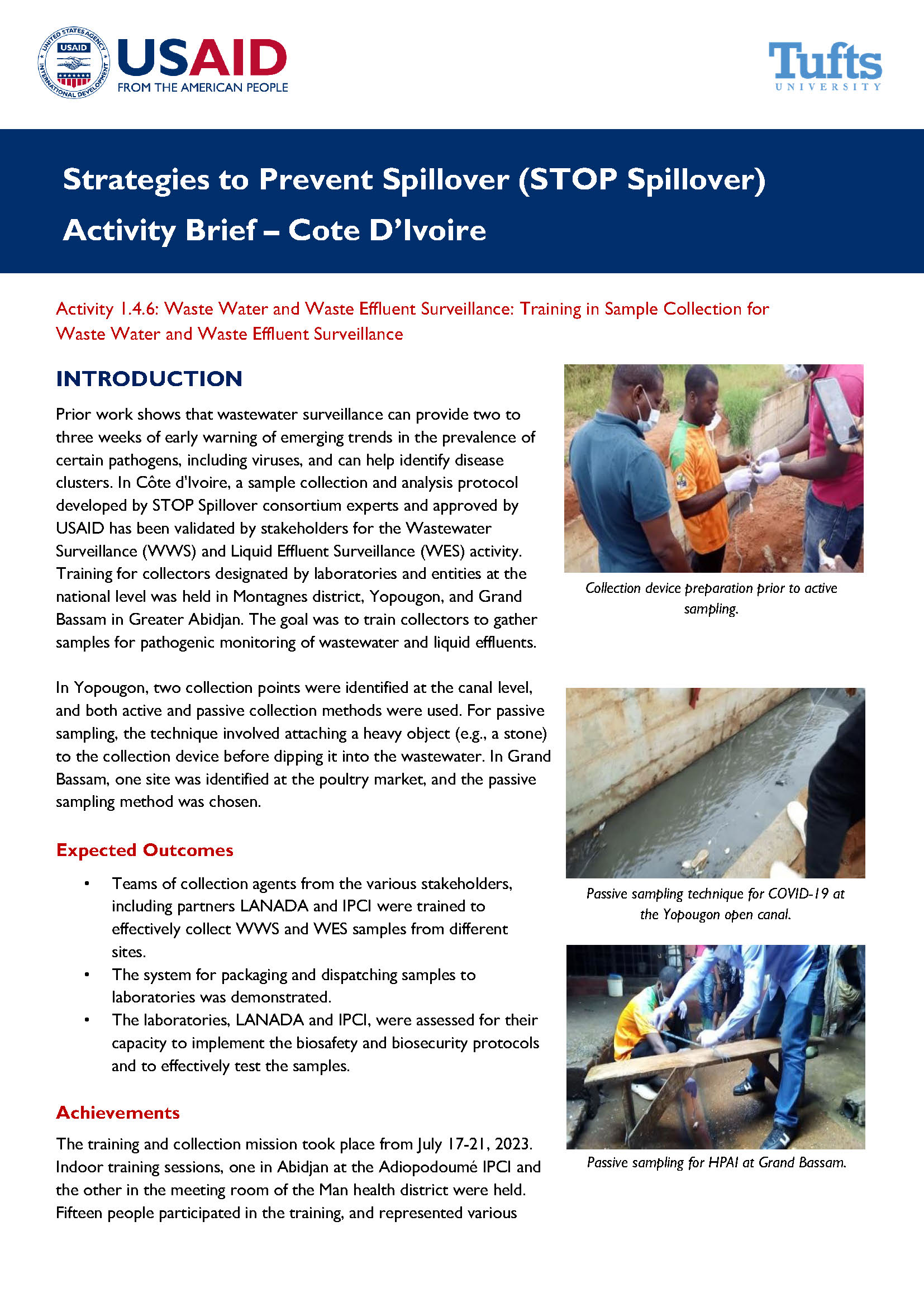
This brief describes training held for collection agents in Côte d'Ivoire to prepare them to collect waste water surveillance and liquid effluent surveillance samples for pathogenic monitoring.
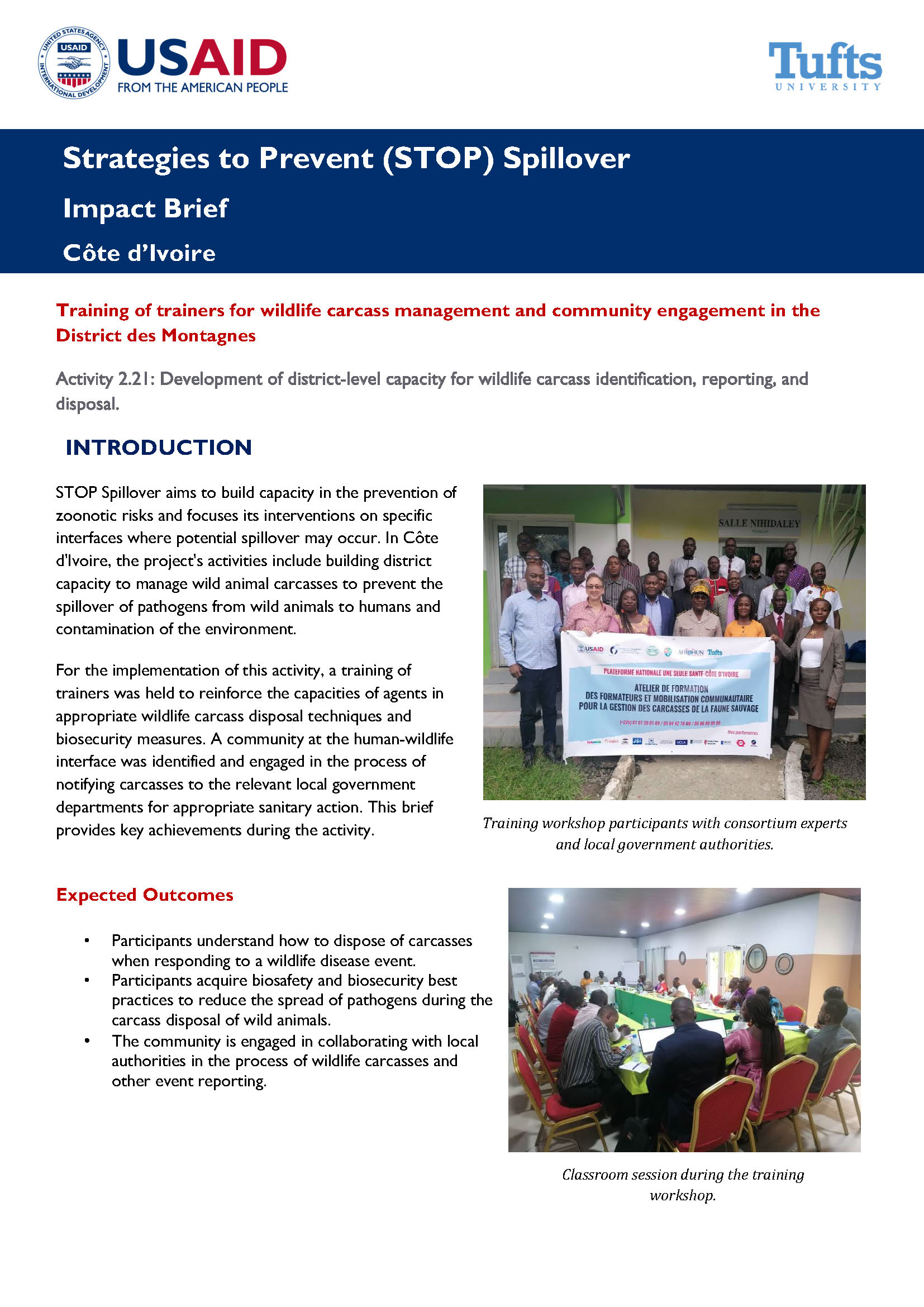
This brief focuses on a training of trainers held in Man in the District des Montagnes in Côte d'Ivoire. The training addressed methods of carcass disposal, decision criteria for managing wildlife carcasses, and biosafety and biosecurity precautions during carcass disposal.
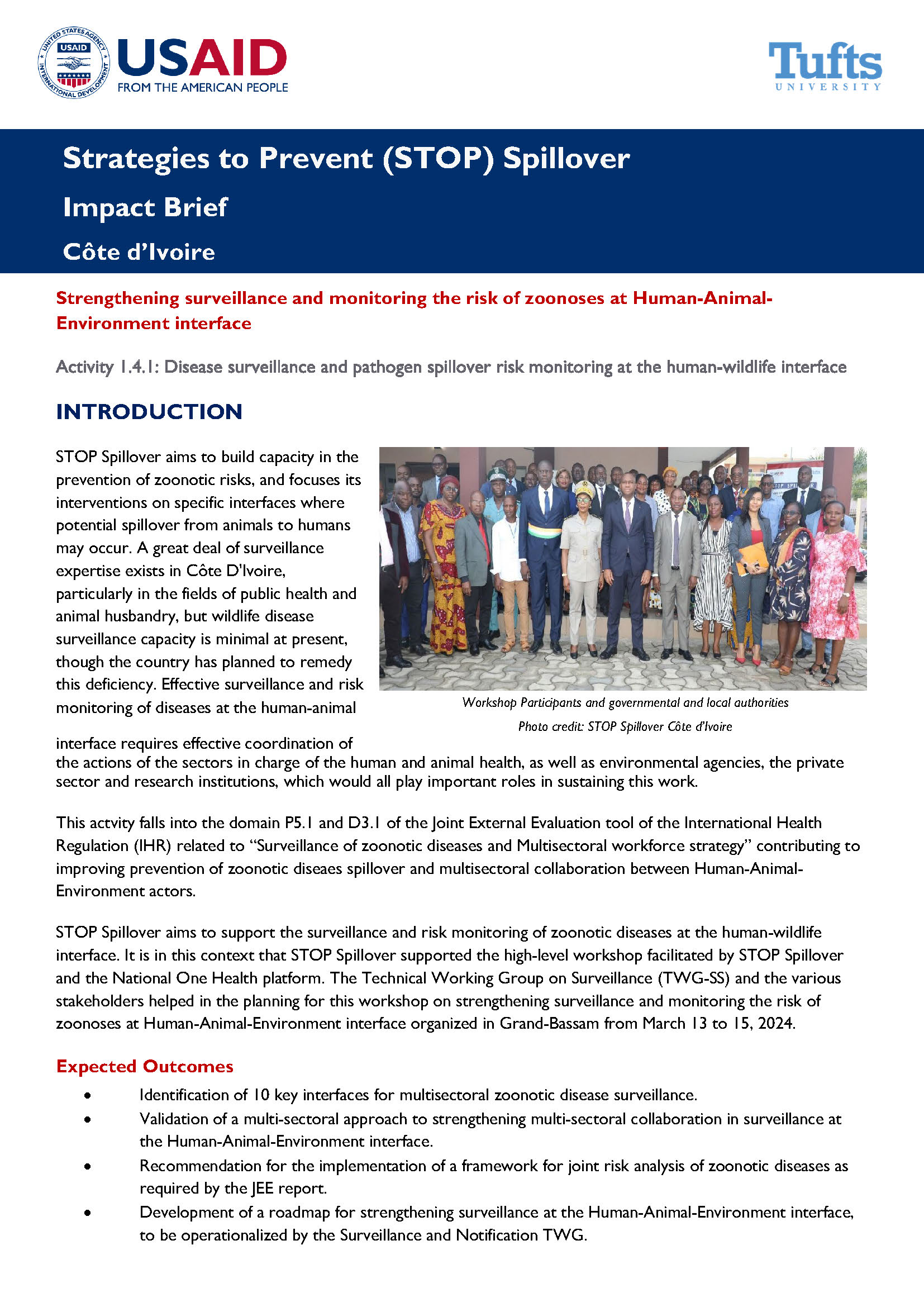
This brief summarizes a three-day workshop focusing on Identifying and identifying the status of ten key human-animal-environment interfaces, discussing a coordination framework for joint zoonotic disease risk assessment, developing a roadmap for collaboration in the surveillance and monitoring of zoonotic disease risks, and discussing STOP Spillover activities carried out over the previous twelve months.
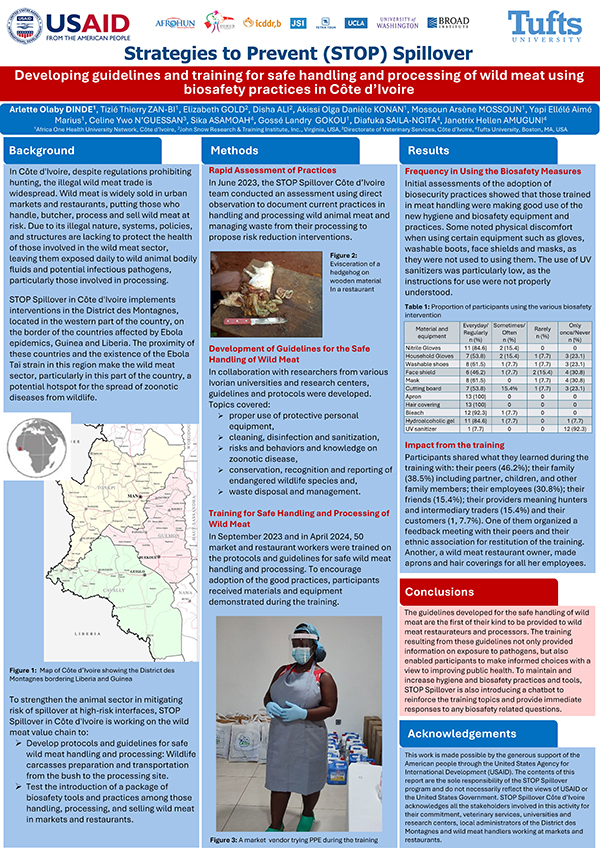
This STOP Spillover poster, presented at the June 2024 Global Health Security Conference, describes the Côte d'Ivoire Country Team's development of biosafety guidelines and training for those involved in the wild meat trade, which addressed issues such as hygiene in processing, waste management, sanitization, cleaning and disinfection and the proper use of PPE.
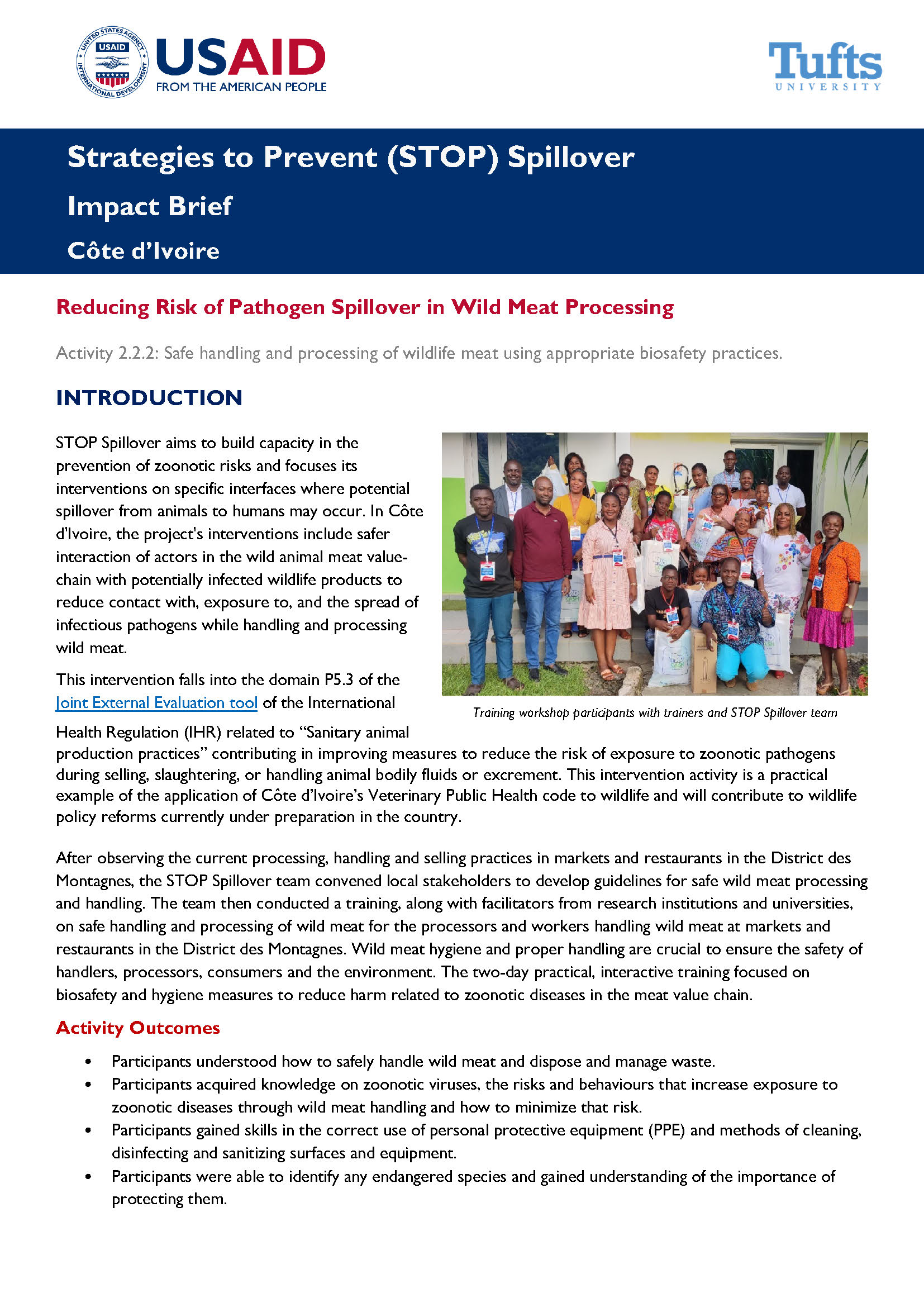
Impact Brief: Reducing Risk of Pathogen Spillover in Wild Meat Processing
This brief describes a two-day interactive training held for processors and workers who handle wild meat in markets and restaurants in the District des Montagnes in Côte d'Ivoire. The training focused on biosafety and hygiene measures to reduce harm related to zoonotic diseases in the meat value chain.
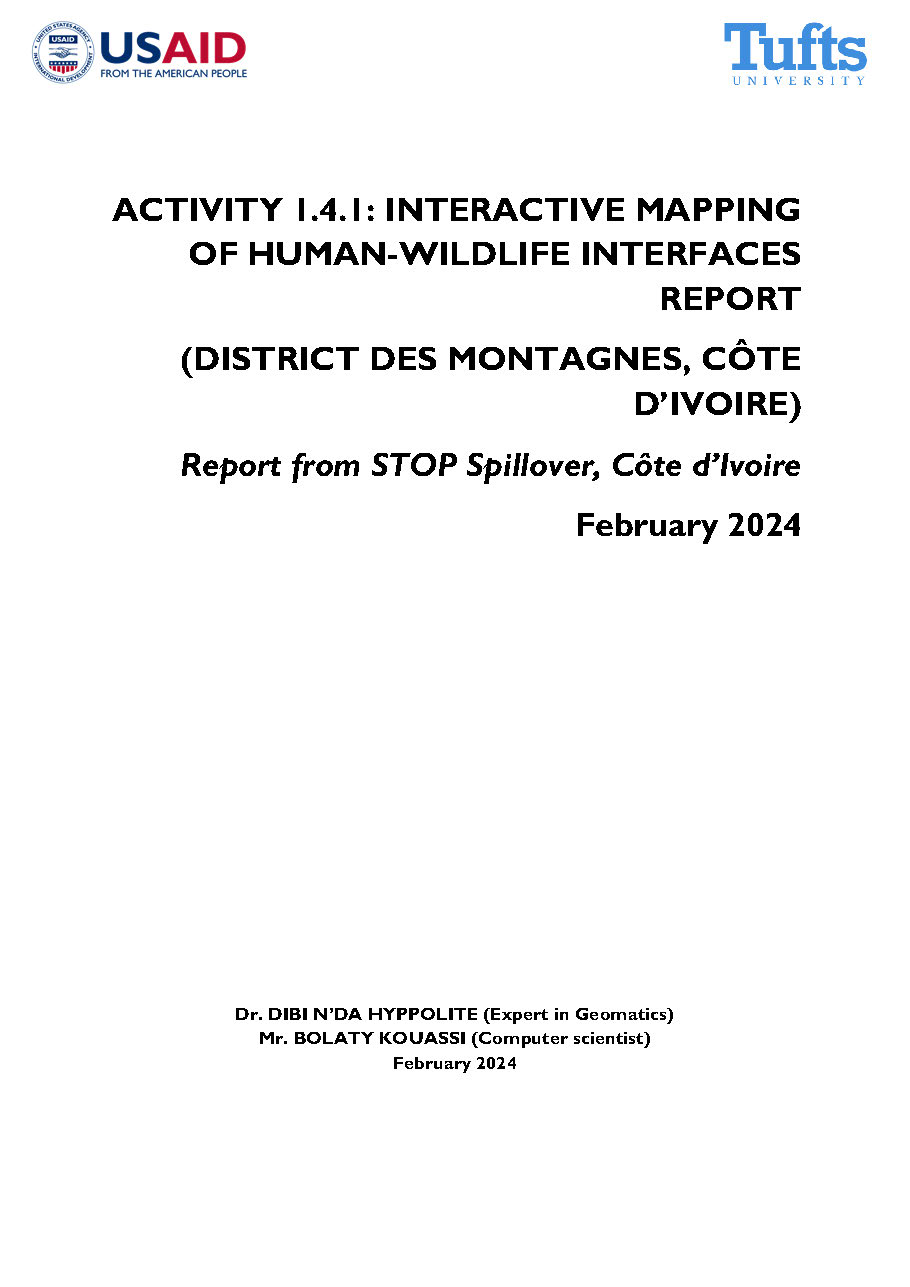
Interactive Mapping of Human-Wildlife Interfaces: A Report from STOP Spillover Côte d'Ivoire
This report summarizes the development of a spatial database of the levels of interaction between humans and wildlife in the District des Montagnes in Côte d'Ivoire, including the creation of an interactive platform for identifying areas of high human-wildlife interaction and potentially high zoonotic disease risk.
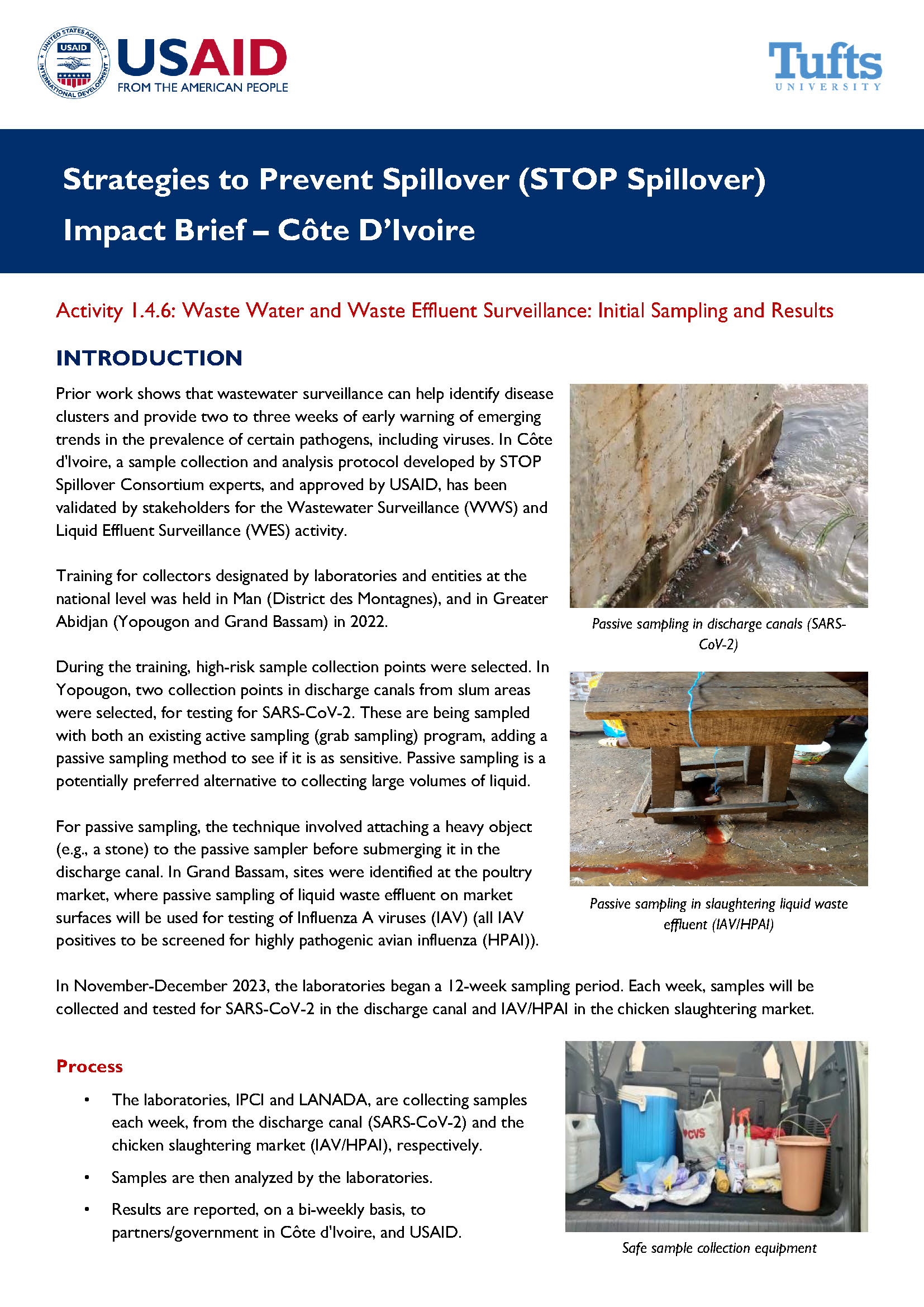
Impact Brief: Waste Water and Waste Effluent Surveillance: Initial Sampling and Results
This brief describes an initiative to conduct sampling of waste water and liquid waste effluent at high-risk sample collection points in Côte d’Ivoire. Some of the samples were found to be positive for SARS-CoV-2 or Influenza A viruses. The results demonstrate the utility and benefits of wastewater and liquid waste surveillance in low- and middle-income countries, in particular the use of inexpensive passive samplers to obtain high-quality results.
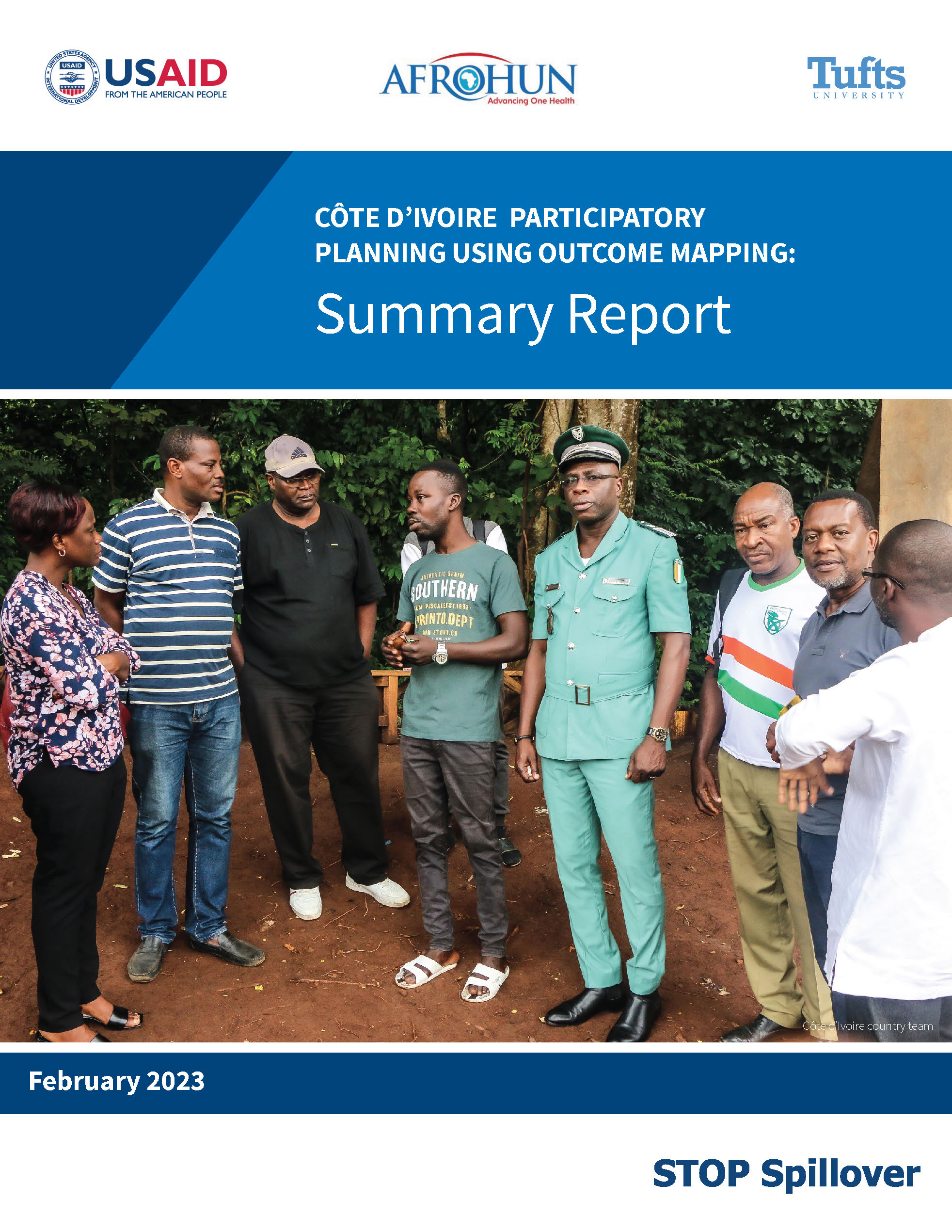
Côte d’Ivoire Participatory Planning Using Outcome Mapping: Summary Report
Through outcome mapping (OM), a structured participatory tool that uses a collaborative context-specific process, spillover ecosystem stakeholders (both traditional and non-traditional) are empowered to identify and reduce zoonotic spillover risks at human-animal-environment interfaces and develop an outcome-oriented project action plan. This report outlines the details of the OM workshop activities in Côte d’Ivoire.